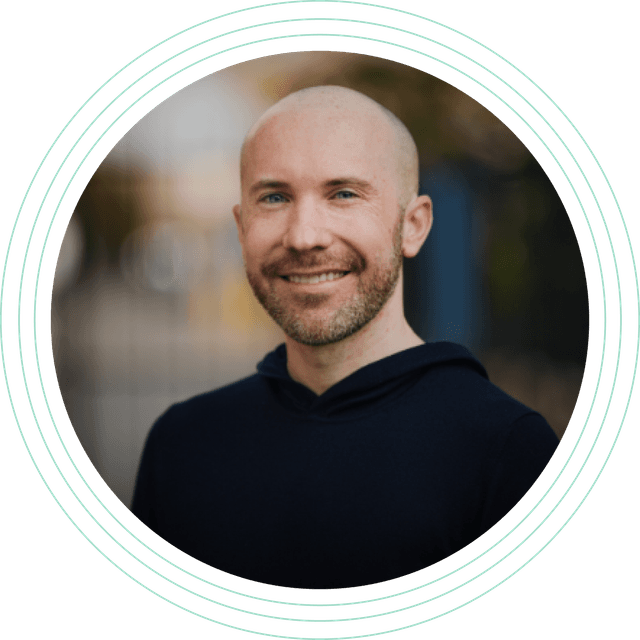
Hi, I'm Jonathan, Oar Founder
Binges. Blackouts. Bad decisions. Anxiety. Regret. Shame. Resolving to quit drinking entirely. Making "rules" to limit drinking. Trying and failing again and again.
In many ways, my story is similar to millions of others with alcohol problems, but a medication called naltrexone has made all the difference.
Curious about medication-assisted treatment and want to speak with Jonathan directly?
Naltrexone is an ordinary-looking, beige pill that has had a transformational effect on my life. Since I began taking 50 milligrams of naltrexone every morning, I haven't ended a night out-of-control drunk once. While I still enjoy a cocktail before dinner or a beer at a baseball game, I don't feel the same rush of excitement and euphoria that alcohol used to bring. I don't feel the overpowering urge to drink more and more and more and more.
These days, I usually lose interest in drinking after one or two drinks. While avoiding binges and blackouts is an obvious gamechanger, the most profound impact of drinking less has come from what I've gained: energy, focus, health, and connection to the people most important to me.
I struggled with alcohol addiction for 15 years - almost my entire adult life - before I found my way to an empathetic, non-judgmental addiction medicine specialist who encouraged me to give medication a try.
But it was a long journey. Over those 15 years, I sought treatment in multiple venues: Alcoholics Anonymous groups, therapists and doctors' offices, and even emergency rooms after some particularly scary alcohol-induced injuries. Nowhere was medication suggested as a treatment option. I was just told to quit.
I wasn't exposed to medication-assisted treatment in my professional life either despite spending more than 10 years working in healthcare as a product manager, management consultant, and strategy leader. I helped clients design their approaches to population health and the treatment of chronic conditions like addiction while battling addiction myself. But medication for alcohol problems didn't come up there either.
My personal ignorance of medication as an option reflects broader failings of our addiction treatment system. Patients and professionals have low awareness of medication. Many treatment programs don't make room for medication despite the evidence for its effectiveness or don't have prescribers on staff.
Society sees Alcohol Use Disorder as a personal failing even though it's a recognized disease.
We wait for people who are struggling to hit rock bottom even though it's common sense to intervene as soon as possible in the course of a disease that tends to get worse, not better. We insist on abstinence as the only legitimate goal of treatment even though there's plenty of evidence to support harm reduction - also known as cutting back. The good news, however, and the reason we built Oar, is that we can fix what's broken about our addiction treatment system and culture at large.
How it started
In discovering and experiencing the benefits of medication firsthand, I found myself feeling both frustrated and inspired. Frustrated because convenient access to effective medication is so rare. Inspired because we can change that.
Millions of Americans struggle with alcohol problems. I started Oar because I was one of them. I hope you'll join me in discovering the ways in which less is more.
- How It Works
- Alcohol & Health
- Alcohol Misuse & Alcohol Use Disorder
- Strategies to Drink Less or Quit
- Treatment Options
- Medication-Assisted Treatment
- Recovery Stories
- Member Stories
- Moderation Stories
- Sobriety Stories
- ¹ Oar Health membership plans include access to the Oar Health platform, virtual consultations with a healthcare professional, and medication if prescribed by a healthcare provider. 3 month membership plan costs $297, equating to $99/mo.
- ² Self-reported by members after 6 months of Oar Health membership.
- ³ Verywell Health survey of Oar Health members, published March, 2023.
- ⁴ Prescription medication is available only if prescribed by a licensed clinician.
- ⁵ Compounded medications are prepared based on a prescription from a healthcare provider. They are not reviewed by the FDA for safety or efficacy.
